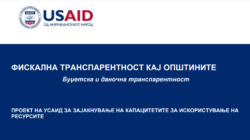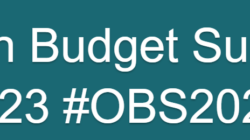Author: Borce Smilevski, President of the Assembly of CEA and Tax Manager, Deloitte Office Skopje
The Center for Economic Analyses’ study on Macedonia’ shadow economy shows a declining trend during the 2000 – 2010 period, with a breakout starting in 2006-07. This trend is explained by the 2006-07 introduction of the flat tax that replaced progressive tax rates of personal income tax with a single rate of 10%, aligned with the corporate income tax rate.
While flat taxes are often criticized for being unfair, the introduction of the flat tax in Macedonia was an important step forward, since it boosted the economy with meaningful tax relief and reduced the shadow economy. The general perception among foreign experts and local officials was that the tax policy change was only partly to be credited for these positive effects, however it clearly was the most important factor.
Along with reducing statutory tax rates, tax incentives that had eroded the tax base and provided more room for the shadow economy were also abolished. This closed the door on many non-compliant taxpayers in the shadow economy and rapidly increased the tax base, which more than compensated for the revenues “lost” with the tax reduction. This was a textbook move to “reduce tax rates and broaden the tax base” that successfully reduced the shadow economy.
In addition to the flat tax, another very important measure helped reduce the shadow economy in the country: the adoption of the Law on Registering Cash Payment. Given that one of the main anchors of shadow economies is the so-called cash economy, this law hindered companies’ ability to use the cash economy to avoid payment of taxes such as VAT and CIT. The Law was introduced 2001, when no other country in the region was even considering a similar move; for example, Croatia adopted a similar law in late 2012. Naturally, consistent implementation of the Law took several years. Various groups of citizens resisted the Law (e.g., lawyers), however its stricter enforcement coincided with a period in which the shadow economy started to decline. It should be recognized that the Public Revenue Office carried out internal reforms that increased its agility in enforcing the Law on Registering Cash Payment. This was a strong hit to the shadow economy and remains this way to this day.
This analysis is a part of the “Emerging Macedonia” Magazine of the American Chamber of Commerce in Macedonia. Continue reading – page 32
Full issue here















